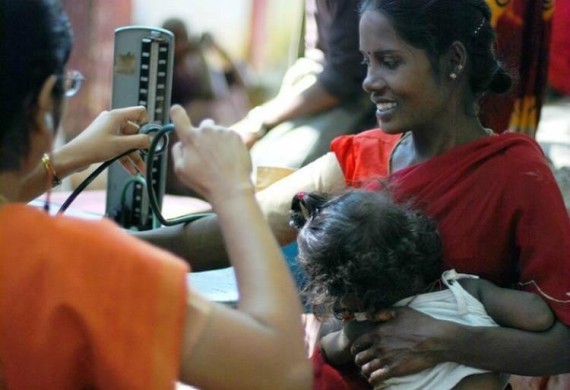
92 Percent of Women are Aware of Feminine Health Issues, but only a few take Proactive Measures; Survey
By: WE Staff | Wednesday, 29 June 2022
According to a recent survey by Motherhood Hospitals, a specialty hospital chain that provides comprehensive women, children, and fertility care services, only a small percentage of women actively take steps to improve their health, even though 92 percent of them are aware that their physical health can affect their mental and emotional health. The survey found that half of the women would rather discuss their gynaecological health concerns with female family members than with a professional expert, while the remaining women would rather do so with friends or spouses.
The survey was carried out to follow changes in consumer perception of female health and to look into the causes of these changes, as well as to better understand the priorities of contemporary women in terms of feminine health.
The poll also helped to discover a number of variables, including social and psychological elements that may be affecting or impacting women's gynaecological health.
Findings from The Motherhood Hospitals survey:
There is a lack of persistent effort to maintain one's feminine health.
22 percent of Indian women who visit gynaecologists do so for menstrual health concerns, compared to 55 percent who only have pregnancy-related concerns.
Only 11% of women regularly visit a gynaecologist. In the future, 54 percent of women said they want to start tracking their health, compared to 38 percent who haven't given it much attention. After a week or two, only 33 percent of women chose to have a follow-up checkup; the other 33 percent either said no or were unsure. For Indian women, taking care of yourself came first on the list before seeing an expert.
The top three things that women do to maintain good gynaecological health are to eat well, exercise frequently, and manage their stress.
Vijayarathna Venkatraman, CEO, Motherhood Hospitals, said, “In the recent times with ease of access to digital resources, financial independence and higher levels of awareness, women’s general and reproductive health in India is gaining attention. This was also validated by our survey but the sore point which emerged is the inaction in taking proactive measures. Timely intervention can help control the condition from becoming unmanageable and posing further threats. With an aim to redefine comprehensive healthcare for women, we at Motherhood Hospitals, are committed to providing accurate and transparent information and quality care from our highly proficient medical practitioners to help women with their feminine concerns and get the best of advice and treatment that is available.”
Knowing the gynaecologist makes a significant difference, according to one-on-one interviews conducted with survey respondents. The majority of women are amenable to discussing their gynaecological concerns with them if they feel comfortable with them and think they have an open mind. Some respondents indicated that they prefer to go directly to a women's specialist hospital for routine gynaecological health examinations.
According to the poll, even though the investigated sample places a high priority on feminine health and is highly aware of it, for a number of reasons, this awareness does not always transfer into action (seeing a gynaecologist). This attitude is a great chance to emphasise how crucial it is for women to prioritise their feminine health and practise preventive measures.
Interviews with 225 women, largely from SEC A and B, who represented millennials, Gen X, and Gen Z in India's Tier 1 cities were used to conduct the in-depth qualitative survey.


.jpg)



